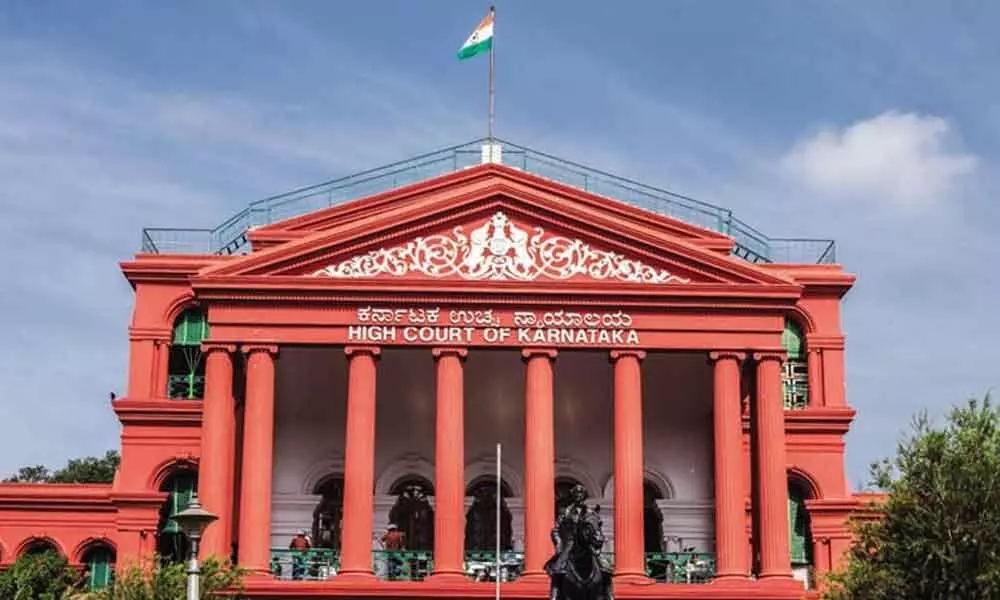Karnataka High Court guidelines for CWCs to care for children abandoned by parents

Karnataka High Court
The Karnataka High Court laid down guidelines for Child Welfare Committees (CWCs) in the State to deal with situations where parents are unable to look after their child. The bench headed by Chief Justice AS Oka issued the guidelines in the wake of an unmarried couple in Mysuru expressing their inability to take care of their child.
Bengaluru: The Karnataka High Court laid down guidelines for Child Welfare Committees (CWCs) in the State to deal with situations where parents are unable to look after their child. The bench headed by Chief Justice AS Oka issued the guidelines in the wake of an unmarried couple in Mysuru expressing their inability to take care of their child.
Court learnt that the State government has no rules under the Juvenile Justice (Care and Protection of Children) Act, 2015 to deal with this situation. The child has been placed under the care of an NGO with the help of the district level CWC, and is up for adoption.
The HC said, "CWCs need to conduct an in-depth inquiry to find out whether surrender of the child by the parents has serious effects on the rights of the child. Also, CWCs have to bear in mind whether the application for surrender is genuine or intended to benefit adoption agencies, who may engage in illegalities. CWCs should conduct proper identification of parents who wish to surrender their children for physical, emotional and social factors beyond their control."
The court warned that a straitjacket formula cannot be used to ascertain such factors and the CWCs would have to meet parents individually as well as collectively to learn the facts. "Ascertain whether the parents genuinely want to surrender the child and whether they are the biological parents. For this reason, CWCs are equipped to examine any other person, if the particular case demands," the HC said.
It was also mentioned that CWC should take the assistance of child psychologists from government medical institutions, who will provide counselling to the parents who wish to surrender their child.
The court also observed that as per section 35 (2) of the JJ Act, satisfaction of the CWC cannot be based on what is found in the inquiry alone. In any given case, the CWC can always take the assistance of a child psychologist or any counsellor having expertise in dealing with children. Normally, satisfaction in terms of 35 (2) can be derived after completing the process of inquiry and counselling.
According to section 35 (2), the CWC must give a minimum time of two months to parents to reconsider their decision to surrender the child. After two months, it is the duty of the CWC to find out whether the parents have reconsidered their decision.















